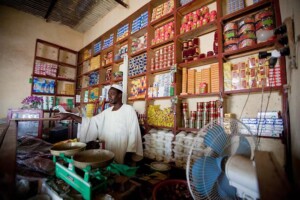PM Hamdok pledges to address obstacles to Sudan’s economic reforms
Responding to criticisms and protests at the tough economic reforms, Sudan’s Prime Minister Abdallah Hamdok has defended the current economic programme as an implementation of the policies he adopted since he took office, “without dictation from anyone other than the interests of Sudan”.
 Sudan's PM Abdallah Hamdok (SUNA)
Sudan's PM Abdallah Hamdok (SUNA)
Responding to criticisms and protests at the tough economic reforms, Sudan’s Prime Minister Abdallah Hamdok has defended the current economic programme as an implementation of the policies he adopted since he took office, “without dictation from anyone other than the interests of Sudan”.
Addressing the nation on Tuesday, Hamdok defended the cancellation of subsidies on commodities and fuel, as well as the liberalisation of the Sudanese Pound, saying that he has been “frank and transparent since the beginning”. He pointed out that the transitional government continues to subsidise many basic commodities and services, including electricity, flour, cooking gas, and medicines.
He highlighted that the economic reforms are accompanied by policies aimed at alleviating the burden on the public of implementation of the reforms, including provision of the direct support such as the Samarat family support programme, and encouraged families to register enjoy this right.
Hamdok said that despite the challenges, the programme has shown positive results, including lifting the country’s name from the US list of the countries sponsoring terrorism and the recent Paris Conference which was organised to support the democratic transition in Sudan and encourage international investments and partnerships.
Bread and fuel protests
Food and other commodity prices have been on the rise in Sudan. OCHA reported last week that prices continued to rise in April. This is especially difficult for Sudan’s displaced.
Earlier this year and for the second half of last year, Sudan was engulfed by a wave of protests against recent price increases in consumer goods, fuel, and subsidised bread shortages.
The protests against increased prices of essential commodities were triggered by Sudan’s economic crisis and high inflation, which caused high price increases without the financial support for civilians to adapt to these price increases.
The response of the Sudanese government to these developments was widely criticised by civilians.
Economist Prof Mohamed Sheikhoun, for example, criticised elements of the 2021 budget, including the removal of fuel subsidies, the increase in electricity fees, and the rising expenditure on security forces and government agencies.
He told Radio Dabanga in January that the government had practically abandoned the provision of commodities by removing essential subsidies on fuel and electricity.
IMF and international support
The international community has lauded Sudan’s economic reforms after its re-entry into the international economy. During the Paris Conference last month, economic reform was a big theme.
UN Secretary-General António Guterres, for example, commended the Sudanese government for undertaking the “difficult economic reforms” and French President Emmanuel Macron also called for the continuation of the “courageous economic reforms”.
Sudan is currently going through a debt relief process under the International Monetary Fund’s (IMF) Heavily-Indebted Poor Country (HIPC) Initiative.
IMF Director Kristalina Georgieva lauded the progress Sudan has made on economic reforms under the IMF Staff-Monitored Program (SMP). Georgieva explained that the debt relief programme “would help unlock significant new financial resources to address Sudan’s large development needs and poverty reduction”.
She also explained that debt relief will be delivered as long as Sudan continues its reform efforts.
Last month, the World Bank’s Vice-President for Eastern and Southern Africa, Hafez Ghanem, stressed that the international community appreciates Sudan’s efforts to improve its economy, fight poverty, and pursue all the necessary economic reforms.











 and then
and then